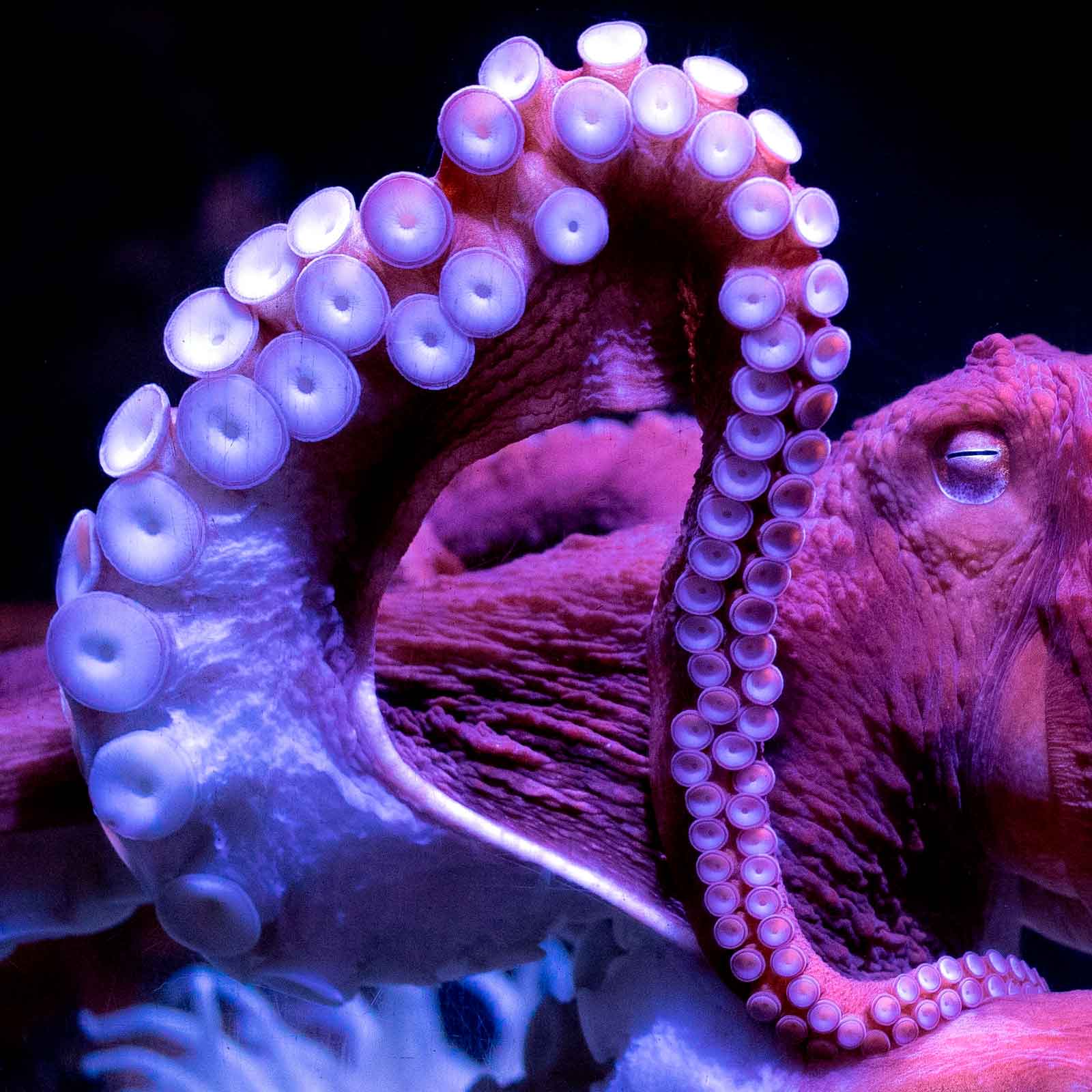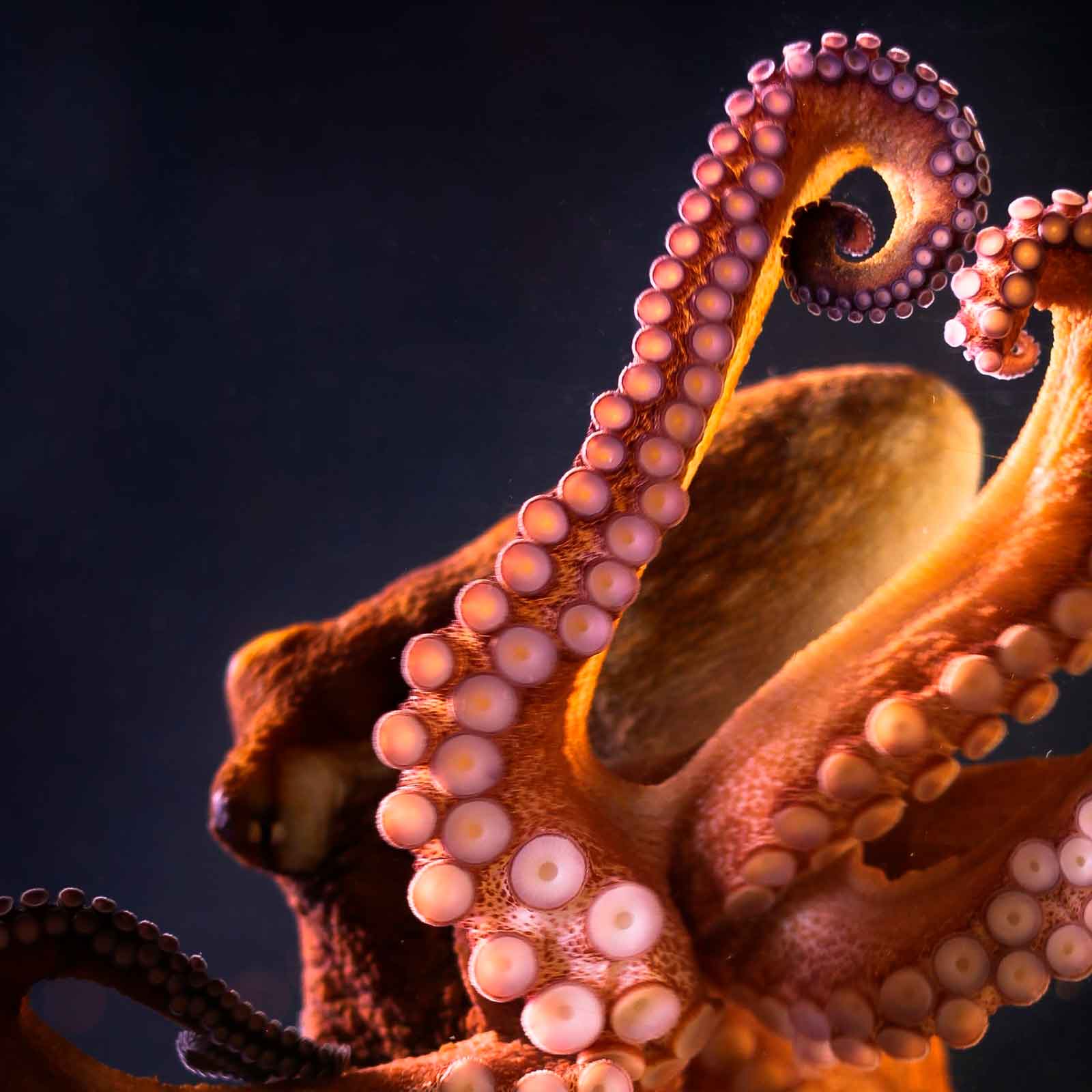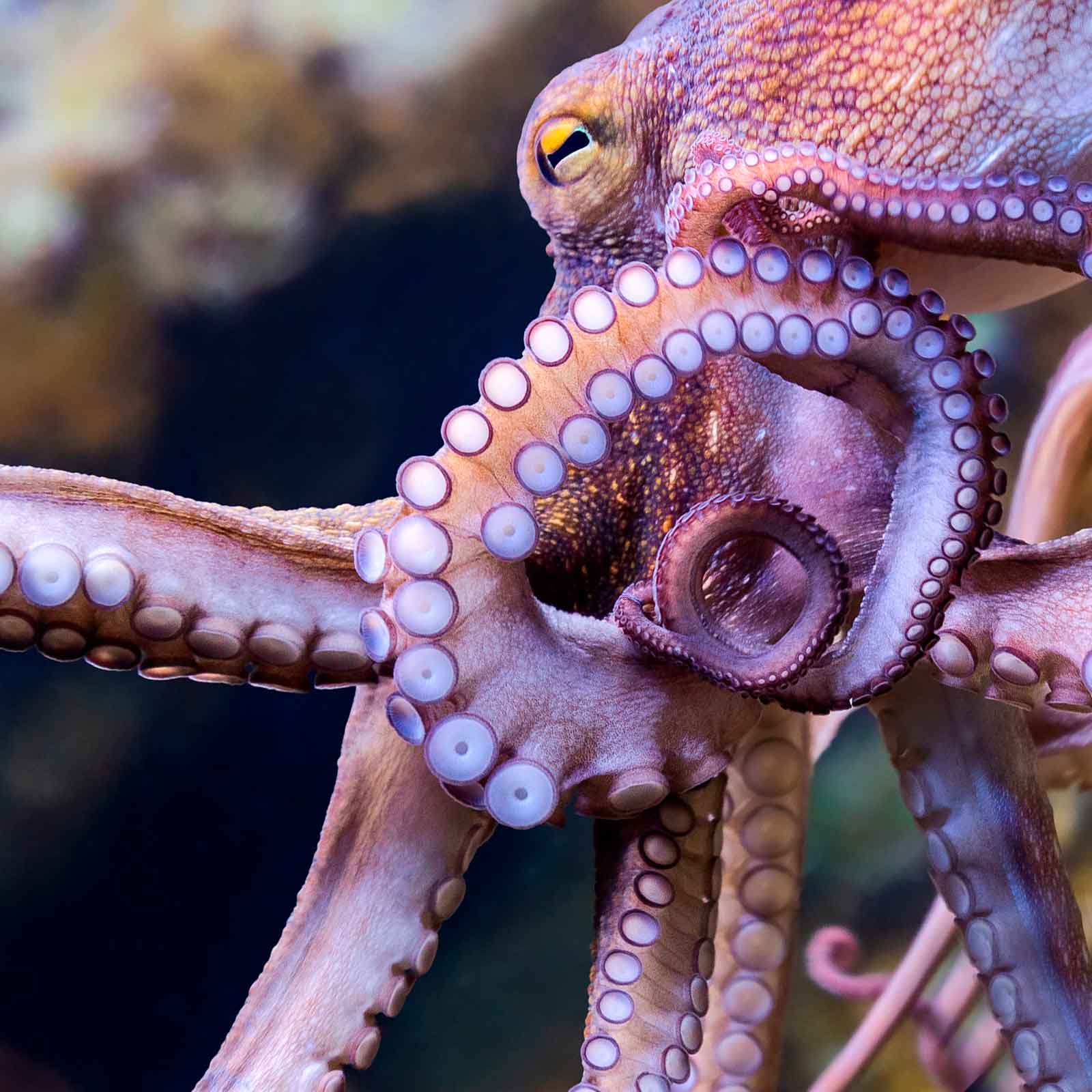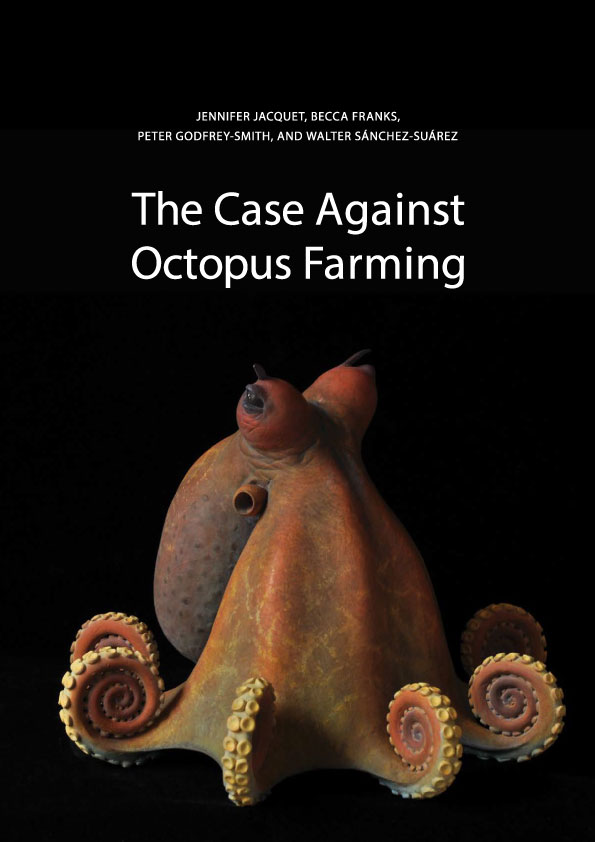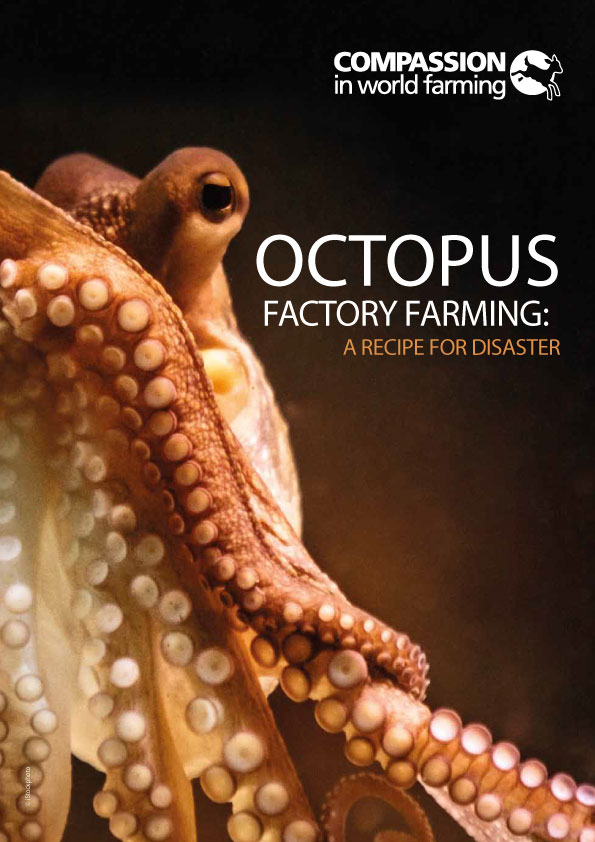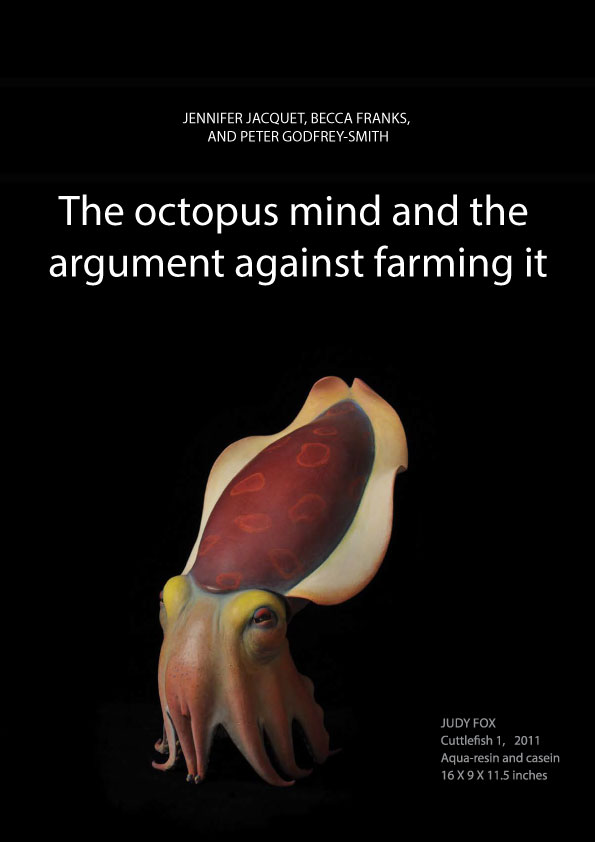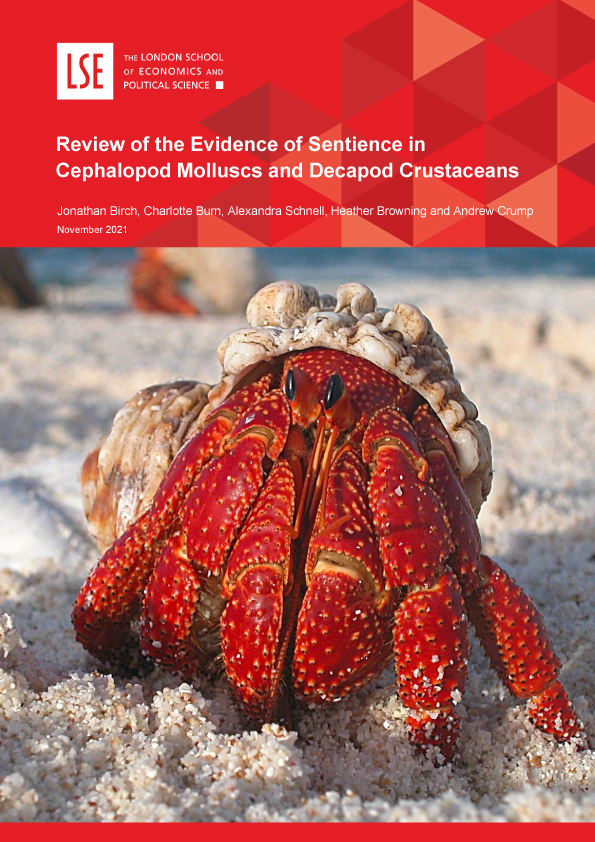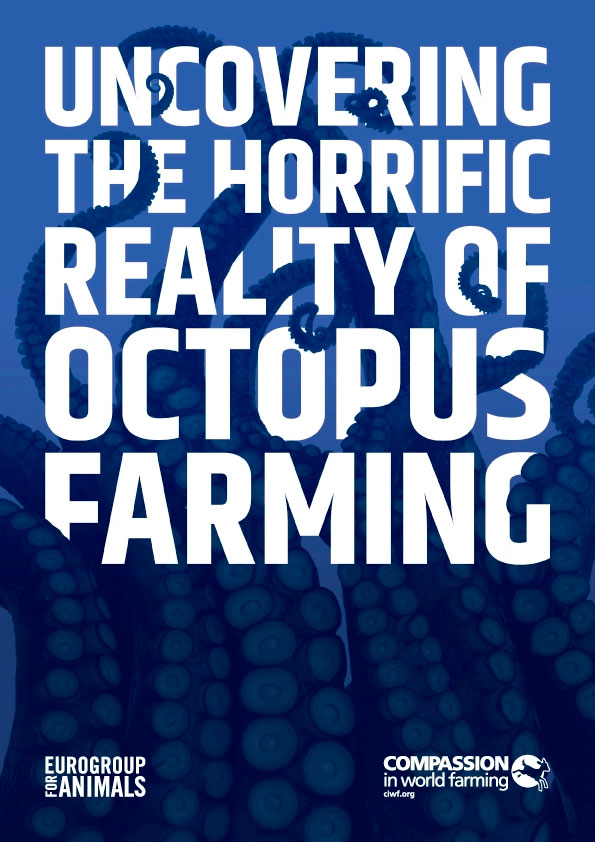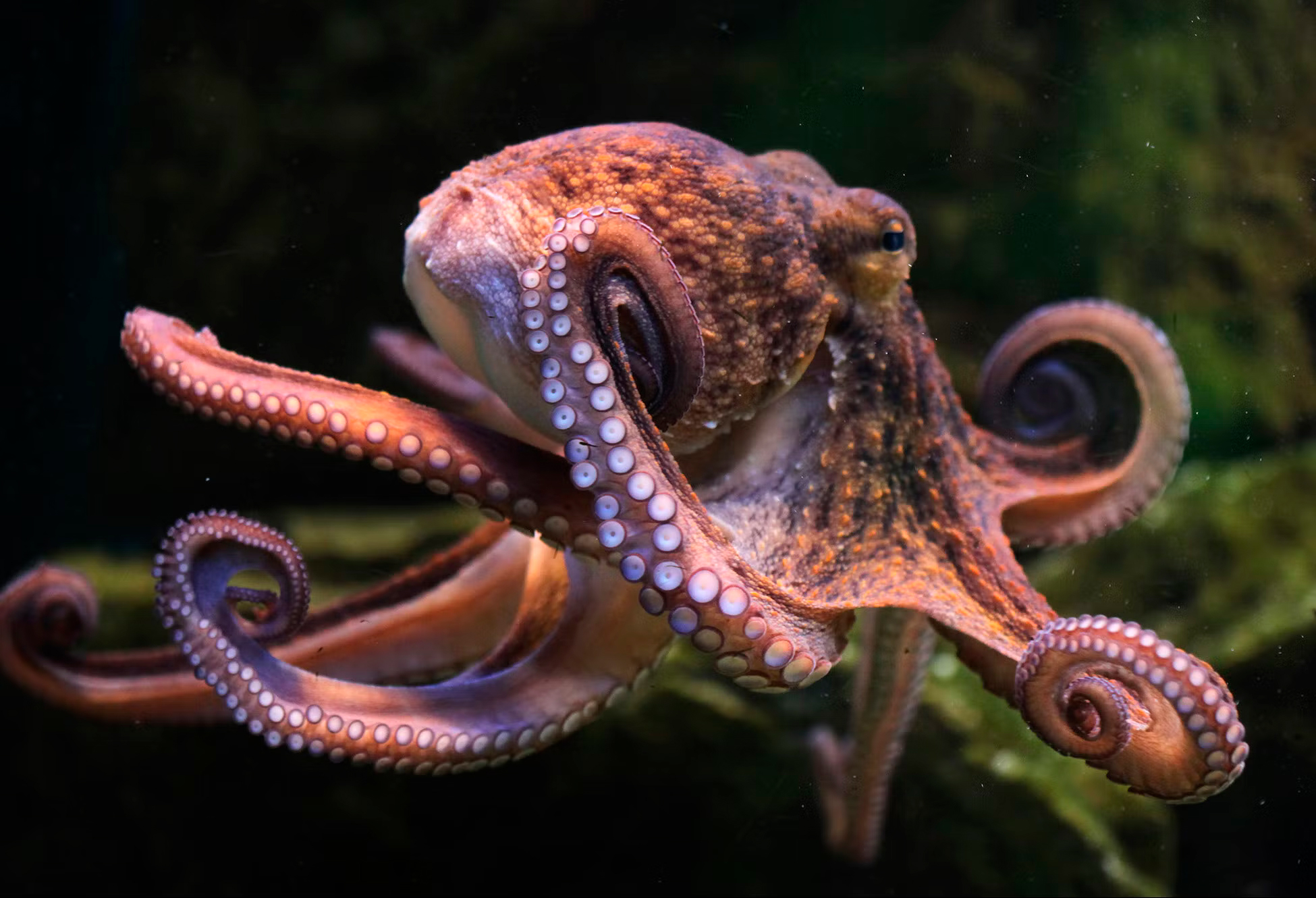The Issue
Nueva Pescanova intends to put into operation the first industrial octopus farm in the world in Las Palmas de Gran Canaria, Spain.
Octopus have traditionally been eaten in the Mediterranean and Southeast Asia, but increasing demand has devastated wild populations and has made the industry eager to breed octopuses in captivity, even without sufficient scientific approval or adequate legislation.
What we know
Nueva Pescanova has been reluctant to share details about its plans for the facility, but through submitted plans and reports we know:
- The company aims to be operational in 2023 and stated an estimated annual "production" of 3,000 tons of octopus "meat".
- Considering that the Octopus vulgaris weighs up to 9 kilograms, that means the sacrifice of at least 300,000 captive octopuses every year.
- Since maintaining ideal growing conditions in the open sea is nearly impossible logistically, they intend to breed the octopuses in tanks on land. Although these tanks are more convenient for industry, they require a large amount of resources to operate, raising questions about energy use and emissions.
- In addition, it is not clear how the large amounts of water will be treated before it is released into waterways. Finally, we do not know if they intend to isolate the octopuses in individual and restrictive pipes or to crowd them into common tanks; but in any of the cases there are serious doubts about how the well-being of the creatures will be guaranteed.
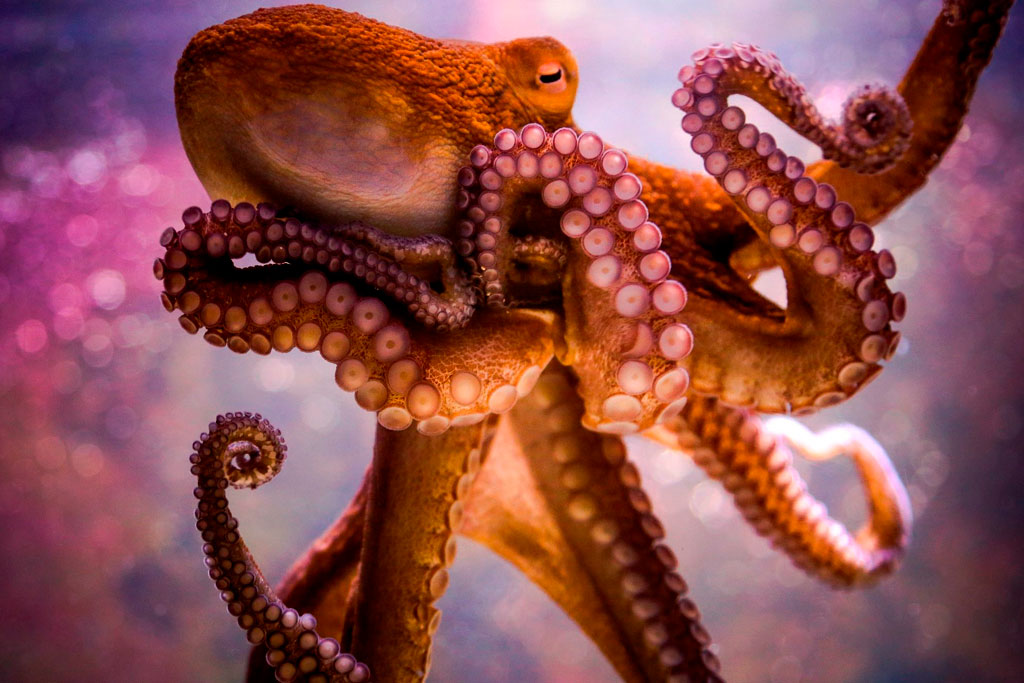
Untenable
As octopuses are carnivorous, they are developing feed based on fishmeal and fish oil. This would put unsustainable pressure on fish and wildlife that depend on them, such as penguins. It would also contribute to increasing food security problems in regions such as West Africa, Southeast Asia and South America, where the main fishmeal factories are located.
Excerpted from "Industrial octopus farming: A recipe for disaster", by Dra. Elena Lara (2021), and "The case against octopus farming. Questions of science and technology", by Jacquet, Franks, Godfrey-Smith & Sánchez-Suárez (2019).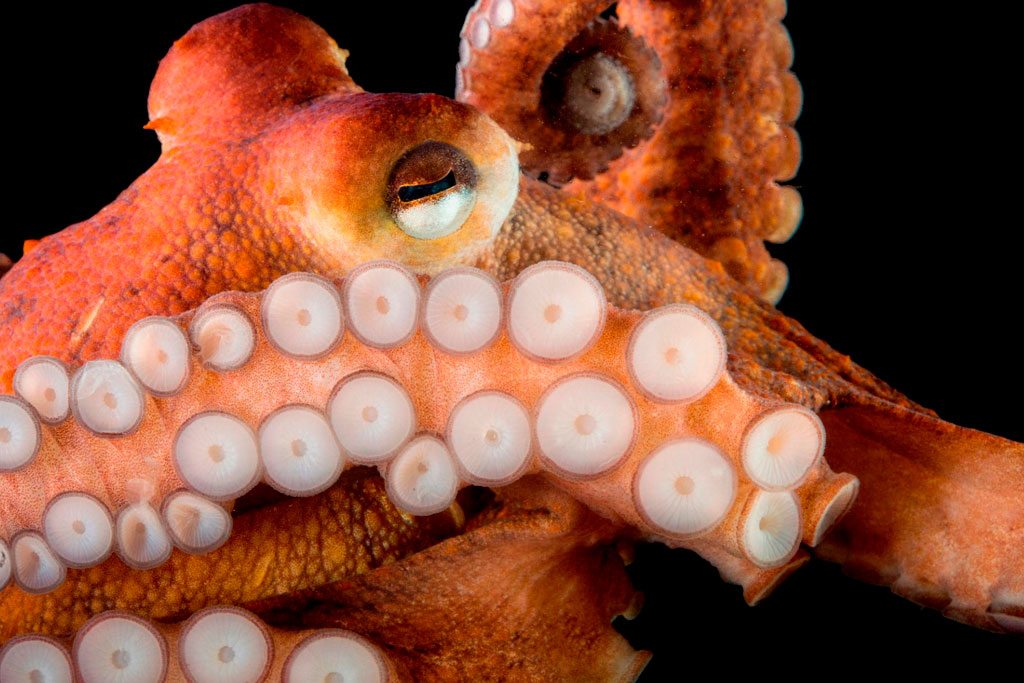
Inefficient
Octopuses have a food conversion ratio of 3 to 1. That is, 3kg of food is needed to obtain 1kg of octopus meat. This is not a justifiable use of the world's scarce food resources. For this reason, octopus farming was considered incompatible with the EU Strategic Aquaculture Guidelines. One third of global carbon emissions come from food production, why increase that footprint?
Excerpted from "Industrial Octopus Farming: A Recipe for Disaster" by Dr. Elena Lara (2021), and "The case against octopus farming. Questions of science and technology", by Jacquet, Franks, Godfrey-Smith & Sánchez-Suárez (2019).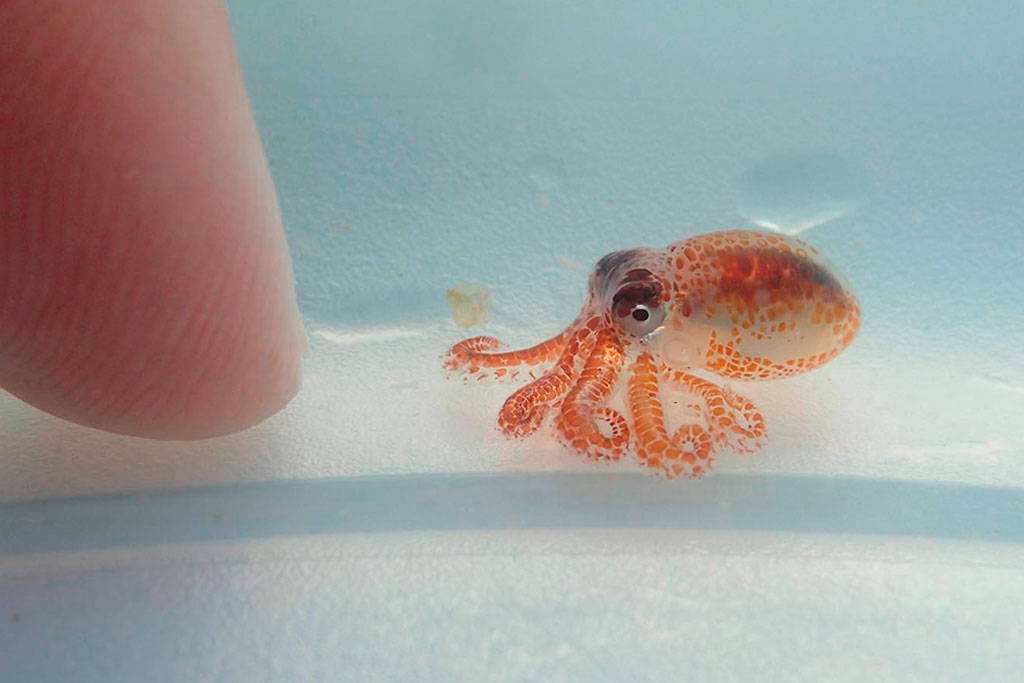
Animal welfare
Octopuses are unprotected from suffering and inhumane slaughter methods, as there are currently no laws in the EU or anywhere that regulate their welfare and farming. It would be totally irresponsible for the authorities to allow octopus farming schemes to continue without proper legislation.
Excerpted from "Industrial Octopus Farming: A Recipe for Disaster", by Dra. Elena Lara (2021), and "The case against octopus farming. Questions of science and technology", by Jacquet, Franks, Godfrey-Smith & Sánchez-Suárez (2019).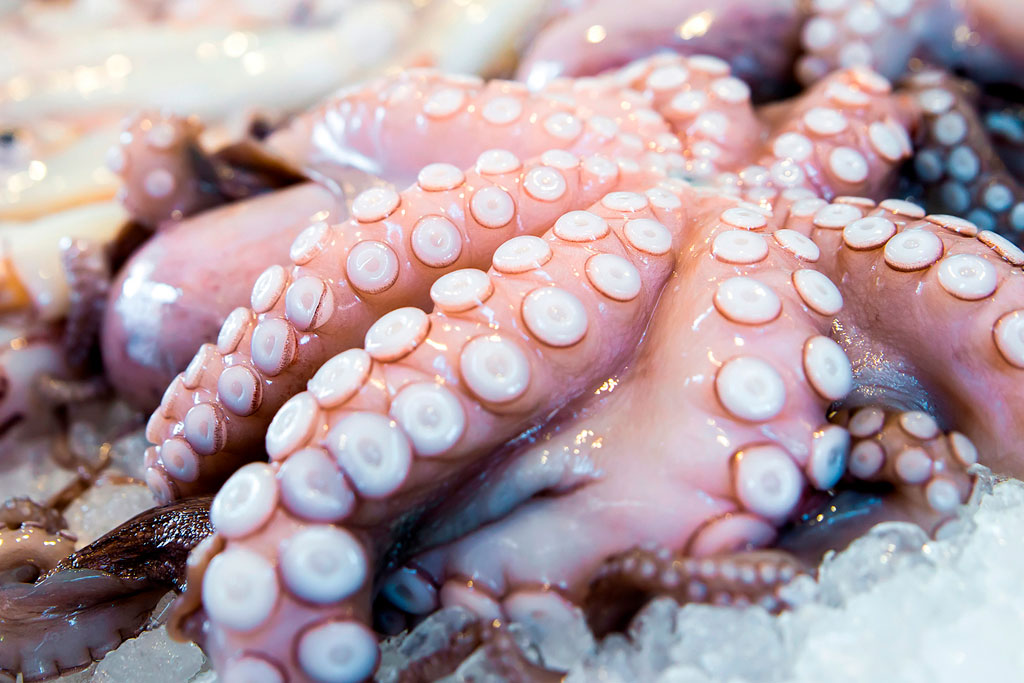
Health risk
The intense conditions on the farm would increase the exposure of the octopuses, but would also open up the possibility of transmission to humans. Previous studies have found that octopuses can suffer from up to 20 different diseases, including Vibrio cholerae, which causes cholera in humans.
Extracted from "Industrial octopus farming: A recipe for disaster", by Dra. Elena Lara (2021), and "The case against octopus farming. Questions of science and technology ", by Jacquet, Franks, Godfrey-Smith & Sánchez-Suárez (2019).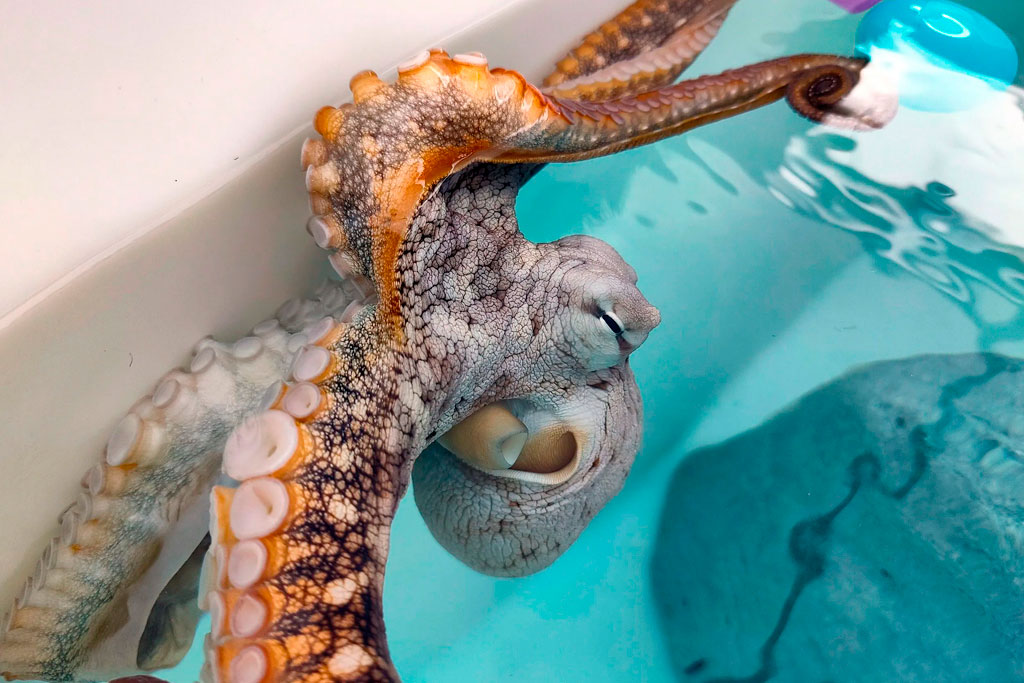
Suffering
Octopuses have no internal or external skeletons to protect them, and their skin is very fragile and easily damaged. In a farm setting, octopuses can be injured, either by physical contact from a handler or by aggressive interactions with other octopuses. Their type of movement - if they are confined in small spaces - could injure them by colliding with the walls of the tanks. There is a high risk of pain and suffering from the injuries that are likely to occur.
Extracted from "Industrial farming of octopuses: A recipe for disaster", by Dra. Elena Lara (2021) , and "The Case Against Octopus Farming. Questions of Science and Technology", by Jacquet, Franks, Godfrey-Smith & Sánchez-Suárez (2019).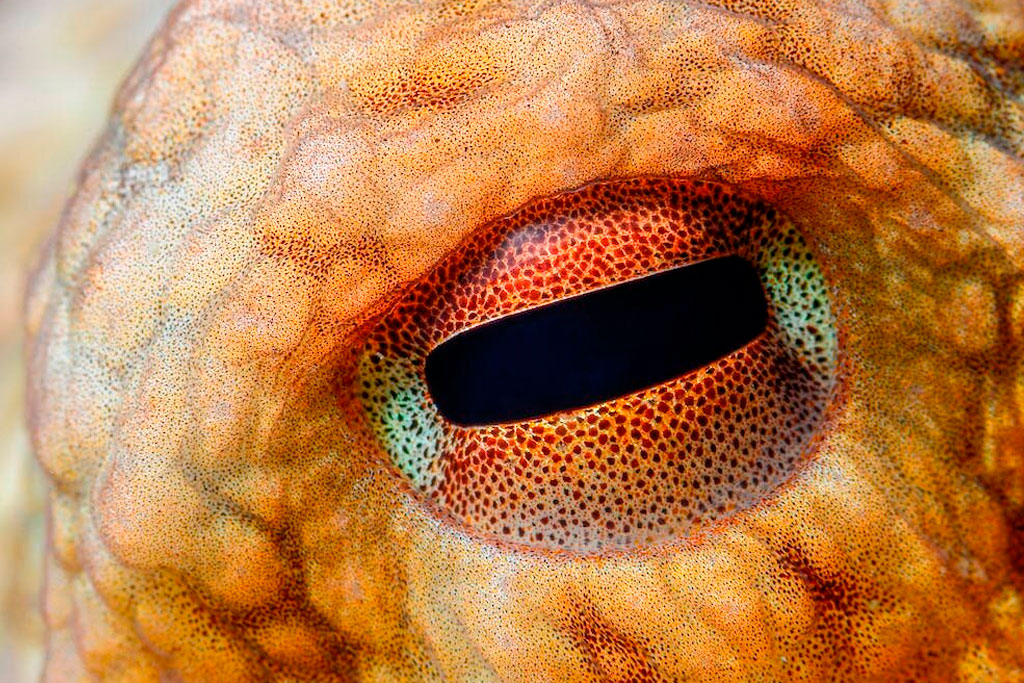
Intelligence
Octopuses are known for their extraordinary intelligence, and as a result of their tendency to explore, manipulate, and control their environment, they would be easily susceptible to boredom in captivity. Octopus farms are likely to have sterile environments and no sensory stimuli. Also, as naturally solitary animals, octopuses would not adapt well to the crowded conditions that are typical of factory farming systems.
Excerpted from "Factory Octopus Farming: A Recipe for the disaster", by Dra. Elena Lara (2021), and "The case against octopus farming. Questions of science and technology", by Jacquet, Franks, Godfrey-Smith & Sánchez-Suárez (2019).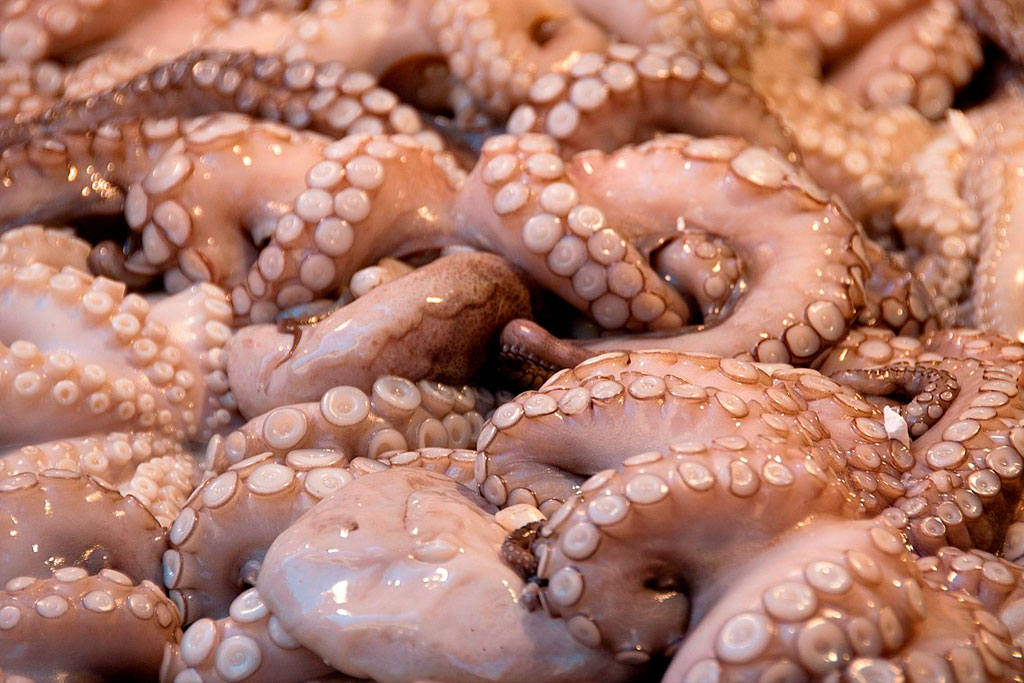
Slaughter
The Spanish company plans to kill them with ice, placing them in containers of water at -3°C, despite the fact that there are studies that have shown that this method of slaughter that uses “ice sludge” causes a slow and stressful death in fish.
Extracted from "Industrial octopus farming: A recipe for disaster", by Dra. Elena Lara (2021), and "The case against octopus farming. Science issues and technology", by Jacquet, Franks, Godfrey-Smith & Sánchez-Suárez (2019).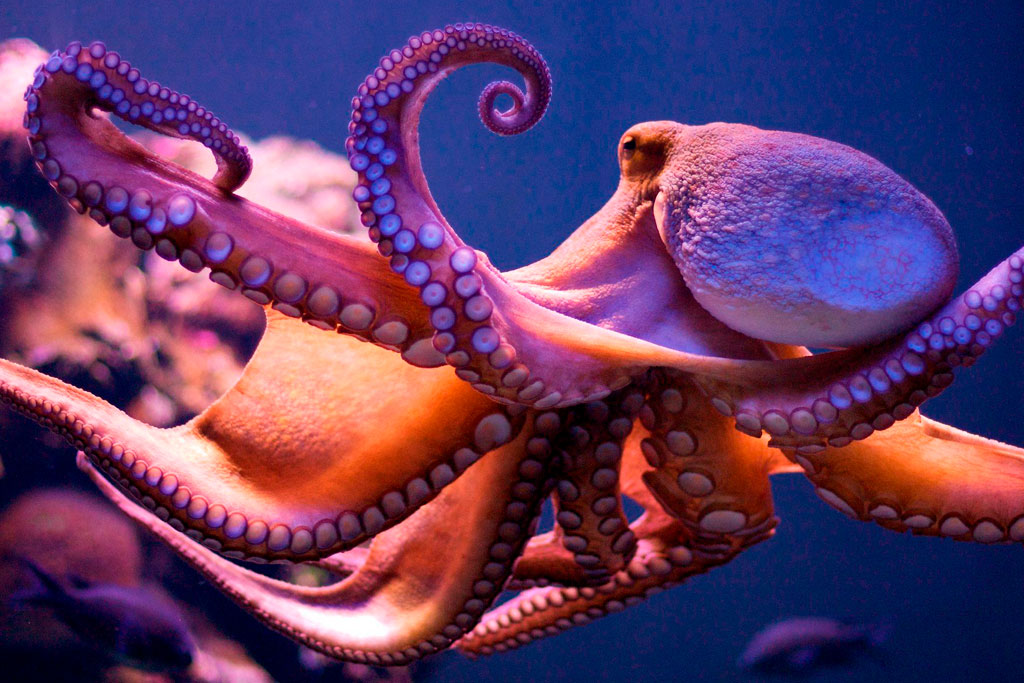
Nature
LSE scientists published a report saying they were "convinced that high-welfare octopus farming is impossible". Therefore, it is likely that the welfare needs of these remarkable creatures are not adequately met on farms and that they suffer immensely as a result.
Excerpted from "Factory Octopus Farming: A Recipe for disaster", by Dra. Elena Lara (2021), and "The case against octopus farming. Questions of science and technology", by Jacquet, Franks, Godfrey-Smith & Sánchez-Suárez (2019).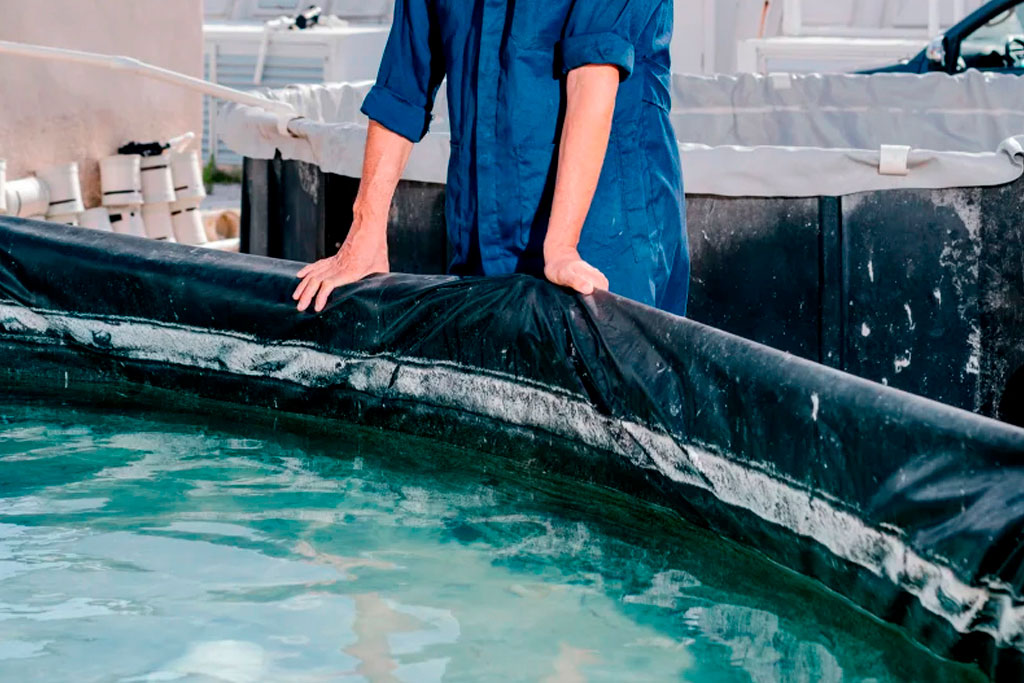
Precarious work
Although this type of farm promises to create jobs and solve local labor problems, the reality is that like all intensive production centers, the processes are highly automated. Very few operating personnel are needed and most of them are very low-skilled.
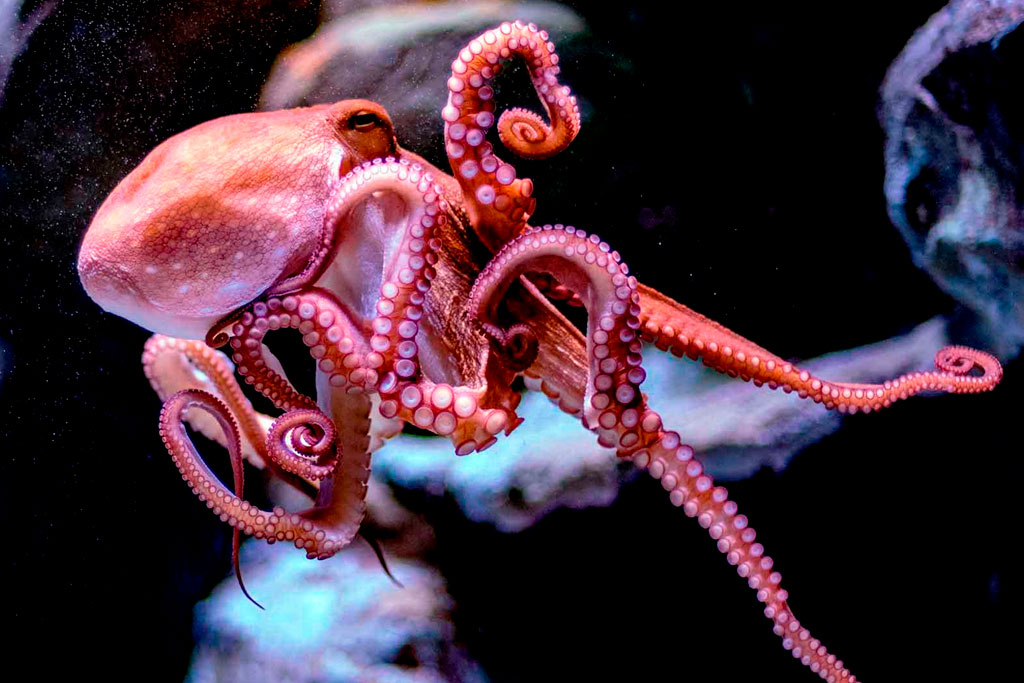
Environment
Just like any other water- or land-intensive farm, the mass production of animals creates a lot of waste and pollution that ends up paying for the environment. Ecological wear and tear can also have consequences in a decrease in the quality of tourism in the area, with the economic deterioration that this entails.
